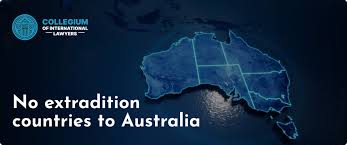Strengthening Financial Operations Control The Role of Interpol

The globalization of financial systems has created opportunities for growth and development, but it has also paved the way for criminals to exploit weaknesses in regulatory environments. In this context, Interpol financial operations control has emerged as a crucial element in the fight against international financial crime. This article will delve into the mechanisms of financial operations control by Interpol, the challenges faced, and the collaborative efforts to enhance global security and compliance.
Understanding the Financial Operations Control by Interpol
Interpol, the International Criminal Police Organization, plays a pivotal role in facilitating international police cooperation. Its financial operations control focuses on preventing and investigating a wide range of financial crimes, including money laundering, fraud, terrorist financing, and tax evasion. These crimes not only undermine economic stability but also create significant challenges for law enforcement agencies worldwide.
The Framework for Financial Operations Control
Interpol’s framework for financial operations control is multifaceted and involves several key components:
1. Information Sharing
One of the cornerstones of Interpol’s financial operations control is the systematic exchange of information among member countries. Through its secure global police communications network, known as I-24/7, Interpol facilitates real-time sharing of intelligence related to financial crimes. This allows member nations to quickly access vital information that can aid in investigations and enforcement actions.
2. Capacity Building and Training
To effectively combat financial crime, Interpol invests in capacity-building initiatives aimed at enhancing the skills of law enforcement personnel. These training programs cover various topics, including financial forensic investigation techniques, understanding money laundering methodologies, and using technology to track illicit financial flows.
3. Partnerships with Other Organizations
Recognizing that financial crime is a transnational issue, Interpol collaborates with other international organizations, such as the Financial Action Task Force (FATF) and the World Bank. These partnerships strengthen global efforts to develop comprehensive strategies for combating financial crime and ensuring compliance with international regulations.
Challenges in Financial Operations Control
Despite its efforts, Interpol faces several significant challenges in effectively controlling financial operations globally:
1. Jurisdictional Limitations
Financial crimes often span multiple jurisdictions, leading to complexities in enforcement due to varying laws and regulations. Interpol must navigate these complexities while promoting cooperation between member countries to address financial crime effectively.
2. Technological Advancements
As technology evolves, so do the methods employed by financial criminals. The advent of cryptocurrencies, dark web markets, and sophisticated cybercrime techniques pose significant obstacles that require continuous adaptation of strategies by Interpol and its partners.

3. Resource Constraints
Many member countries lack the necessary resources and expertise to effectively combat financial crime. This disparity can hinder global efforts, as poorer nations may struggle to implement compliance measures or participate adequately in international initiatives.
Success Stories and Notable Operations
While challenges exist, Interpol has achieved notable successes in its financial operations control initiatives:
Operation SOGA
One of the most significant initiatives is Operation SOGA, which targets the illicit trafficking of drugs and the financial crimes associated with drug trafficking networks. This operation has led to the seizure of substantial assets and the arrest of numerous individuals involved in organized crime.
Operation ECHO
Another successful initiative, Operation ECHO, focuses on identifying and dismantling financial networks linked to terrorism. This operation has enabled member countries to trace and block funding channels used by terrorist organizations, significantly disrupting their operations.
The Future of Interpol’s Financial Operations Control
Looking forward, the importance of Interpol’s financial operations control will only increase as financial crimes become more sophisticated. The organization aims to enhance its capabilities through:
1. Leveraging Technology
Interpol is actively exploring new technologies, such as artificial intelligence and machine learning, to improve data analysis and predictive policing. By harnessing big data, Interpol aims to stay one step ahead of financial criminals.
2. Enhancing Global Compliance Standards
Through partnerships and collaboration, Interpol will continue to advocate for the adoption of rigorous global compliance standards. This includes working with jurisdictions to adopt and enforce anti-money laundering laws and regulations that align with international best practices.
3. Continued Training Programs
As financial crimes evolve, so too must the training programs offered by Interpol. By staying updated on the latest trends and techniques used by criminals, law enforcement agencies can better prepare themselves to confront these challenges.
Conclusion
Interpol’s financial operations control represents a fundamental aspect of the organization’s mission to facilitate international cooperation in law enforcement. As financial crimes become increasingly complex and globalized, the role of Interpol in managing and controlling these operations will be vital. Through enhanced information sharing, capacity building, technology utilization, and global collaborations, Interpol is poised to make significant strides in combating financial crime and ensuring the integrity of international financial systems.



